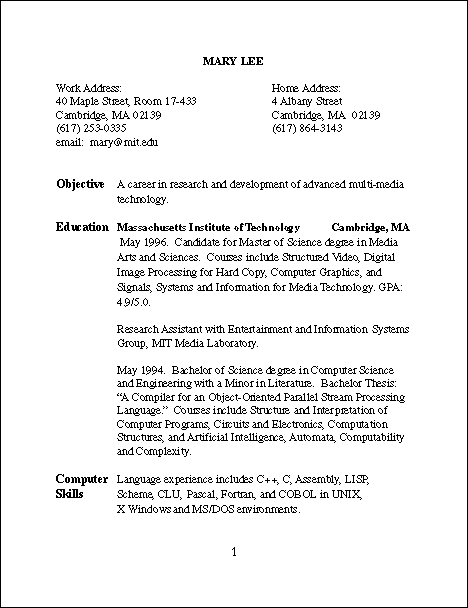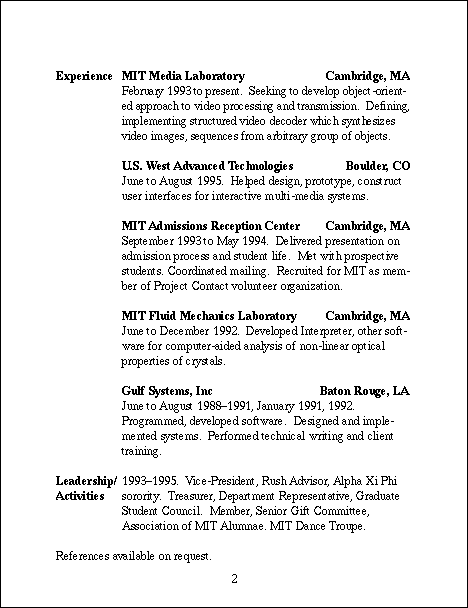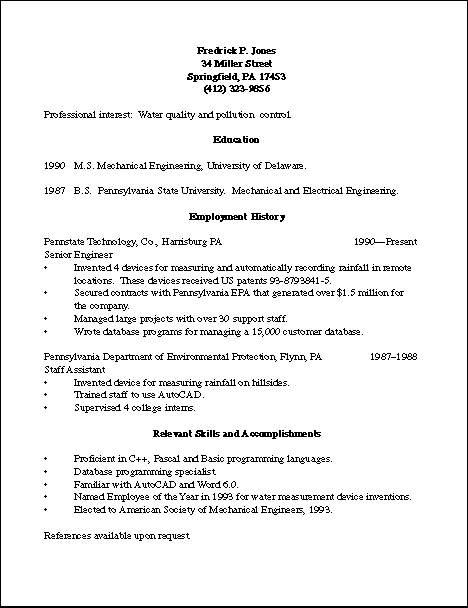
Almost all prospective employers meet your résumé before they meet you, and their reaction to it usually determines whether or not they will consider you further by interviewing you. In addition, your job interviews will often start with references to your résumé. Consequently, spend considerable time in developing one or more versions of your résumé, each one targeted for a specific type of job.
Effective résumés contain the following elements:
The heading should contain your name, full address, and phone number, including area code. If you have them, you may also include a FAX number, an electronic mail address, and even your World Wide Web page (if you are sure that you want all prospective employers to see it).
The objective statement is a short, one- or two-line description of the sort of job you want and the specific fields in which you are interested. It does not have to be a complete sentence.
Summarize your educational history in reverse chronological order, showing how it has prepared you for the sort of job you want. List descriptive titles (but not course numbers) of all relevant classes you have taken. If you have not yet received your bachelor's degree or if you have just graduated, include the name of your high school, the city and state in which it is located, and the dates you attended.
List all relevant work experiences in reverse chronological order, using action verbs to provide vivid and specific descriptions of all activities that are connected with your job objective.
List any skill (such as proficiency in a foreign language or expertise in specific computer applications) that may be relevant to the position. In addition, list any activity or accomplishment that will provide a positive first impression of relevant personal qualities, such as your energy level and initiative, your ability to work with diverse groups of people, and your communication skills. Do not, however, list hobbies or memberships merely to fill out the résumé. Include only activities and accomplishments that a prospective employer may find relevant to the position.
Federal law prohibits employers from asking job applicants certain personal information concerning gender, race, religion, age, and marital status. Include such information on your résumé only if you believe it may help you obtain an interview. Because of government contracts, for example, certain employers can hire only citizens or residents of the United States. Consequently, if you are applying for such a position and you are a United States citizen or resident, you should include that information.
In most cases, conclude your résumé with "References available on request." List the names of your references only if doing so is customary in your profession and only if you have secured explicit permission from each individual to include his or her name on your résumé.
Most résumés should not be more than one page. However, if you have extensive relevant experience and skills, do not hesitate to extend your résumé to two pages.
Your résumé must be readable, neat, and free of grammatical, spelling, and typographical errors. Because it is so crucial in the job application process, edit your résumé carefully and have someone else review it before you send it out.
The following résumés illustrate the main features of résumeé format.


